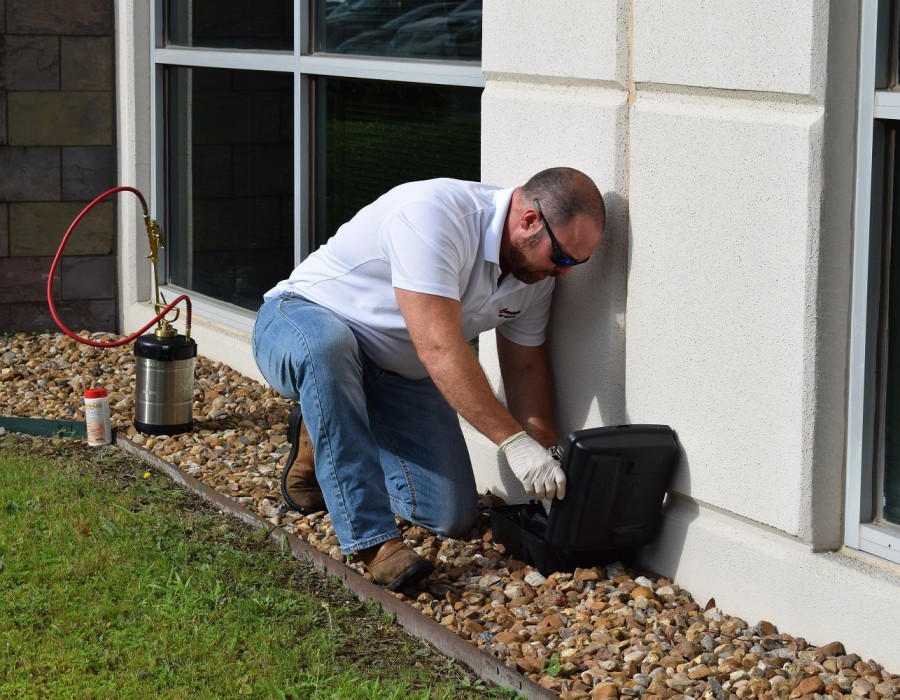A home garden is a sanctuary of nature's beauty, a place where you can cultivate a wide array of plants, from vibrant flowers to nourishing vegetables. However, as any gardener knows, this idyllic space can quickly turn into a battleground against pests that threaten the health and vitality of your cherished plants. To ensure your garden thrives, it's essential to implement effective pest control strategies that safeguard your plants and allow them to flourish. In this article, we'll explore a range of pest control methods to keep your home garden thriving throughout the seasons.
Understanding Garden Pests: Identifying the Culprits
Before delving into pest control strategies, it's crucial to identify some of the common pests that can wreak havoc on your garden. These can include aphids, caterpillars, snails, slugs, rodents, and various types of beetles. Each pest has distinct characteristics and behaviors that can impact your plants differently, making it essential to pinpoint the specific challenges you're facing.
1. Prevention: The First Line of Defense
The age-old saying "prevention is better than cure" rings particularly true in the realm of gardening. By focusing on preventive measures, you can significantly reduce the risk of pest infestations taking root in your garden. Consider the following strategies:
Plant Selection: Choose plant varieties that are naturally resistant to common pests in your area. Research local options and consult with nurseries to find the best-suited plants for your garden.
Proper Plant Spacing: Avoid overcrowding your plants. Proper spacing allows for adequate airflow, reducing humidity and the likelihood of pest infestations.
Soil Health: Maintain nutrient-rich soil through composting and proper fertilization. Healthy plants are more resilient to pests and can better withstand minor infestations.
Regular Inspection: Routinely inspect your plants for any signs of pest activity. Early detection enables you to take action before a minor issue escalates into a full-blown infestation.
2. Natural and Organic Approaches
Embracing natural and organic pest control methods not only protects your garden's health but also supports the broader ecosystem. Consider incorporating the following methods:
Beneficial Insects: Introducing beneficial insects like ladybugs, lacewings, and predatory mites can naturally regulate pest populations by preying on them.
Neem Oil: Neem oil, derived from the neem tree, is a natural insecticide and fungicide. It disrupts pests' growth and acts as a repellent, all while being safe for plants, humans, and beneficial insects.
Homemade Sprays: Create your own pest-repelling sprays using ingredients like garlic, chili peppers, and soap. These concoctions can deter pests without harming your plants or the environment.
3. Mechanical Barriers: Keeping Pests at Bay
Mechanical barriers provide an effective means of physically preventing pests from reaching your plants. Here are some practical approaches:
Row Covers: Lightweight fabric covers placed over rows of crops can prevent flying insects from accessing your plants while still allowing sunlight, air, and water to penetrate.
Mulching: Apply organic mulch, such as straw or wood chips, around the base of plants. Mulch suppresses weeds that could harbor pests and helps maintain consistent soil moisture.
4. Chemical Solutions: A Last Resort
When natural methods alone aren't sufficient, chemical solutions can be considered. However, it's crucial to opt for environmentally friendly options that minimize harm to non-target organisms. Some possibilities include:
Insecticidal Soap: This soap disrupts the cellular membranes of soft-bodied insects like aphids, mites, and whiteflies. It's safe for plants, humans, and many beneficial insects.
Bacillus thuringiensis (Bt): Bt is a naturally occurring bacteria that targets specific insect larvae, particularly caterpillars. It's a targeted solution that minimizes harm to beneficial insects.
Diatomaceous Earth: This powdered substance is composed of fossilized diatoms and damages insects' exoskeletons, causing them to dehydrate. It's non-toxic to humans and pets.
5. Companion Planting: Nature's Pest Repellents
Companion planting involves strategically placing certain plants alongside others to promote natural pest control lockhart. Consider these combinations:
Marigolds: Marigolds emit a strong scent that repels aphids and nematodes, protecting neighboring plants.
Nasturtiums: Nasturtiums act as a "trap crop," luring aphids and other pests away from more valuable plants.
Conclusion: Cultivating a Resilient Garden
Your home garden is more than just a collection of plants; it's a living ecosystem that requires careful attention and protection from pests. By combining preventive measures, natural remedies, mechanical barriers, and responsible chemical usage, you can create a garden that thrives in the face of potential pest invasions. Remember, a resilient garden is the result of a harmonious balance between your dedication and the wonders of nature.





Comments